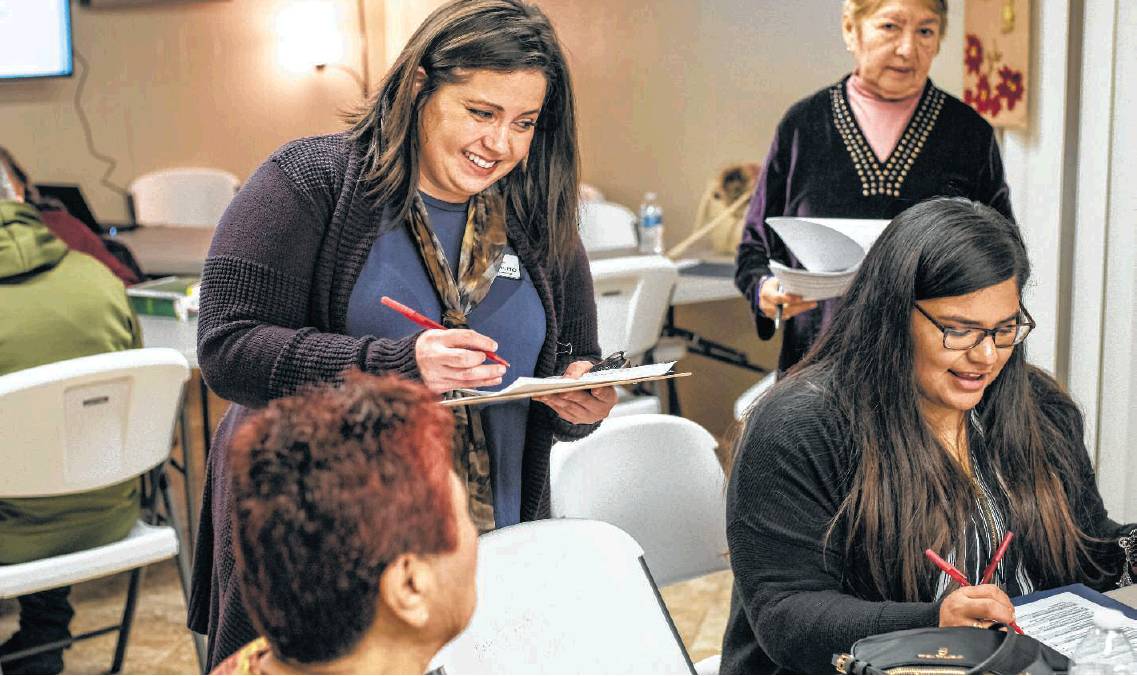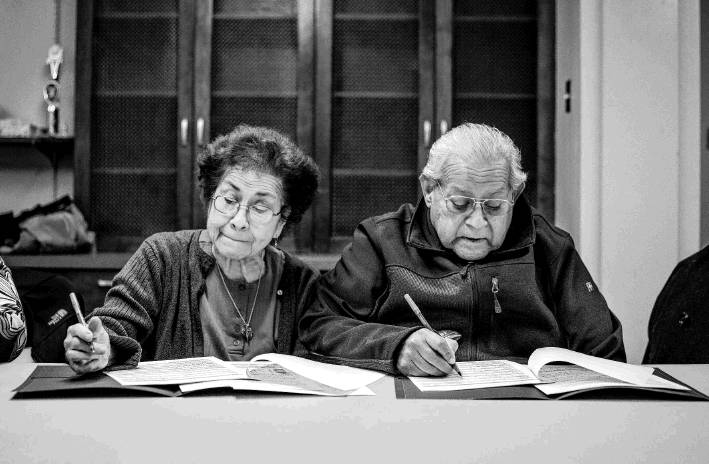Good for body and soul
Churches’ Building a Healthy Temple program offers health educations to members of the congregations
By Liz Teitz STAFF WRITER
When she was growing up, Summer Wilmoth wanted to cure cancer. In her mind, that meant going to medical school.
After losing her mother to cancer as an 8-year-old, “I just always had it in my head, I'm going to be a doctor,” Wilmoth said. “I was always like, ‘I’m going to find a cure for cancer and save everyone.’”
But “research sucked me in” as an undergraduate student at the University of Texas at San Antonio, she said, and now Wilmoth wants to prevent people from getting sick in the first place.
She found an outlet for that with a consortium of churches that formed the Building a Healthy Temple program, which offers health education to its congregations. Wilmoth started working with it as a graduate student in 2010.
After earning a bachelor’s and a master’s degree from UTSA, she also became the school’s first student to be accepted to a joint Ph.D. program in translational science between UTSA, the University of Texas at Austin, UT Health San Antonio and UT Health Houston School of Public Health.
Translational science works to move scientific discoveries to their actual application more efficiently, to overcome barriers that prevent such research from quickly benefiting people and patients.
It’s about “beginning with the end in mind,” Wilmoth said: thinking about the implementation and policy outcomes when the research first begins.
“You have to start your basic discovery with, ‘How can I design this to help people in the future?’” she said. “It’s not just doing science for the sake of science.”
The same idea underlies the 35 San Antonio congregations that incorporate Bible study, nutrition lessons and physical activity in things like Healthy Vacation Bible School and cancer and obesity prevention curriculums.
The lessons use religion to teach about the body as “the temple of the Holy Spirit,” said Central Church of God lead pastor José Daniel Montañez, the program’s spiritual adviser. “And about the importance of being good stewards not only of the things we receive but also of our spirit, body and soul.”
It was launched by Dr. Meizi He, a UTSA professor of kinesiology, health, and nutrition, and Deborah Parra-Medina, professor of epidemiology and biostatistics at UT Health Science Center.
Montañez has helped develop the lessons, applying relevant Scripture and preparing sample sermons for participating churches.
Bible Study lessons such as “Eat Healthy for the Glory of God” and “What do the Scriptures Say About Alcohol?” are tied to nutrition demonstrations on topics like hydration, drinking in moderation and eating whole grains.
In addition to the lessons, churches form health ministry committees for members of the congregation to lead each other and implement long-term changes.
At Central Church of God, that has included cutting out soda and changing cooking methods for church events, as well as changing the way people think about health, exercise and nutrition, Montañez said,
“It developed an awareness of the need to be more careful in how we take care of ourselves,” he said.
And because it’s run by members of the church, the changes have been sustainable over the past six years, since the church first was part of the pilot program.
Other churches have been able to get funding with help from the program for projects like opening a basketball court or making changes to their kitchens, said Wilmoth, who’s now its senior program coordinator but will be seaching for a new job now that she graduated from the doctoral program in December.
The newest Building a Healthy Temple component, the formation of diabetes management groups, is based around the same ideas of tying the program to participants’ faith and operating in a setting that is comfortable and easily accessible.
“The faith-based platform is extremely good for being able to do something that really matters and is sustainable,” built into a message about being healthy, “so you can go out and serve people, serve your community and serve God,” she said. lteitz@express-news.net

